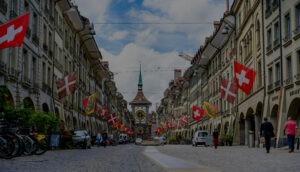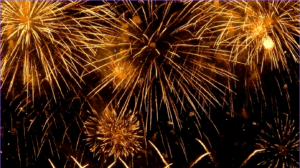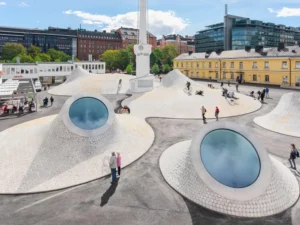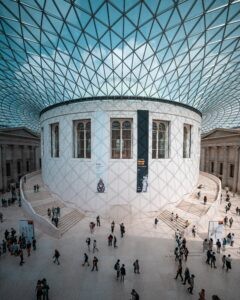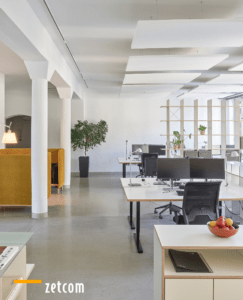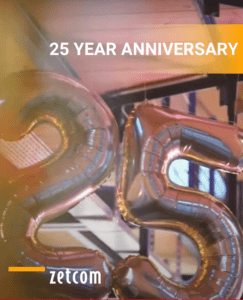CIDOC’s Documentation Standards Working Group (DSWG) today released version 1.0 of the Exhibition Object Data Exchange Model (EODEM), designed to save museums from wasted staff effort by enabling museum databases to export objects’ data from one system at the press of a button, and import the data into another system just as easily.
EODEM provides a template for exchanging information that both identifies the objects being lent, and that describes the lender’s requirements for handling, transport, environmental controls, installation, display, etc. Automating the export and import of this information reduces the chance of manual data errors during the transfer, whilst an EODEM record can contain all the information needed to manage a loan.
Every year, museum staff waste days manually copying the details of thousands of objects from their databases, and sending them to other museums that wish to borrow those objects. The borrowing museums’ staff then manually copy those details back into their own collections management systems. A survey carried out by the DSWG in the second half of 20221 suggests that, over a ten-year period, the median time spent by a museum on data entry for incoming loans is 48 days, whilst the mean is 127 days: very nearly 7 months, so well over half a working year. EODEM aims to save that time.
EODEM takes the form of a profile of the well-established LIDO data-harvesting format, in turn based on the widely used eXtensible Markup Language (XML), which means that it is simple for any competent developer to implement. Whilst museums are encouraged to share as much data as they can, EODEM encourages adoption by working on the principle that something is better than nothing, and even a minimum set of object identification information is sufficient to create a useful and valid record.
EODEM has been developed as a collaboration between documentalists, the CIDOC LIDO Working Group, and collections management system suppliers. Freely available under a Creative Commons Attribution (CC BY) licence, it has already been implemented in museum-digital’s musdb and zetcom’s MuseumPlus, and will be included in the next major releases of Modes. Other software suppliers are either working on implementations of EODEM or planning to do so shortly.
Because it includes basic object identification information as well as more loan- and display-focussed data, EODEM has potential uses for exhibitions, including exhibition and display design; object transport, shipping and insurance; app development; and management of shared storage.
1 https://cidoc.mini.icom.museum/working-groups/documentation-standards/loan-related-data-entry-survey-2023-01-21/
Further information, as well as the resources needed to implement EODEM, can be accessed via the project’s homepage.
Trilce Navarrete, CIDOC Chair, said: “EODEM emerged as a pragmatic solution to a long-neglected inefficiency at the core of museum work: sharing basic documentation information about works on loan. Supported by CIDOC’s documentation expertise, EODEM demonstrates the potential afforded by documentation. We celebrate EODEM’s launch. Its simplicity and functionality make it a must-have in any collections database.”
Regine Stein, Chair of CIDOC’s LIDO Working Group, said: “The exchange of object information for exhibitions is a prominent use case for data reuse that is of great importance to so many museums worldwide. Facilitating such reuse of object data in multiple contexts is the primary goal of CIDOC’s LIDO standard. We are very excited about the release of EODEM, now implemented as a LIDO profile. It has been a fruitful collaboration between the two CIDOC working groups, benefiting both sides – to the mutual advantage of our community. Congratulations!”
Norbert Kanter, instigator of the project and Director of Product Development for zetcom AG, said: “In the end, the goal of all Collection Management Software vendors is to make the work of museum and collection staff easier and more effective. For the first time, several software companies and CIDOC have worked together over years to achieve this goal. Now EODEM enables the flow of data between cultural institutions worldwide and we count on all CMS vendors to support the community through the implementation of this international standard.”
Press contact: Rupert Shepherd (EODEM co-ordinator): rupert@rupertshepherd.info +44 7941 187904
Notes for editors
CIDOC (the Comité International pour la Documentation) is the ICOM International Committee for Documentation. One of ICOM’s 30 international committees, it provides the museum community with advice on good practice and developments in museum documentation, which is essential to all aspects of a museum’s activities.
CIDOC’s Documentation Standards Working Group promotes and identifies relevant standards for museum work. It aims to act as a point of liaison with relevant bodies and initiatives which develop standards of relevance to museum documentation, and encourage museums and developers to take into use standards and recommendations which are developed, maintained and supported by CIDOC Working groups or other relevant bodies. It works with museum experts, academics and software providers to increase understanding and communication between different documentation-related disciplines.
LIDO (Lightweight Information Describing Objects) is a format for contributing collection information for resource discovery. The LIDO XML schema is intended for delivering metadata, for use in a variety of online services, from an organisation’s online collections database to portals of aggregated resources, as well as exposing, sharing, and connecting data on the web. The strength of LIDO lies in its ability to support the full range of descriptive information about museum objects. It can be used for all kinds of objects, e.g., art, architecture, cultural history, history of technology, and natural history. LIDO is sustained by CIDOC’s LIDO Working Group.
ICOM (the International Council of Museums) is an international organisation of museums and museum professionals which is committed to the research, conservation, continuation and communication to society of the world’s natural and cultural heritage, present and future, tangible and intangible. It is a membership association and a non-governmental organisation which establishes professional and ethical standards for museum activities. As a forum of experts, it makes recommendations on issues related to cultural heritage, promotes capacity building and advances knowledge. ICOM is the voice of museum professionals on the international stage and raises public cultural awareness through global networks and co-operation programmes. ICOM is the only global organisation in the museum field.



